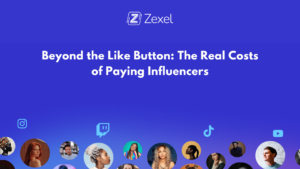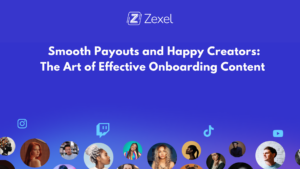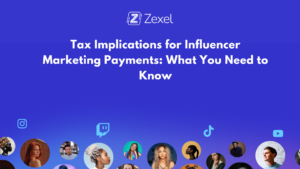
Paying influencers in the Gulf Cooperation Council (GCC) countries, namely the United Arab Emirates (UAE), Saudi Arabia, Bahrain, Qatar, Oman, and Kuwait, requires a nuanced understanding of regional compliance, tax regulations, and international payment mechanisms. This document outlines key considerations for brands looking to collaborate with influencers in these countries.
Compliance
Compliance with local laws and international financial regulations is paramount. Each GCC country has its own set of rules governing digital transactions, contracts, and influencer marketing. Ensure that your payment process adheres to:
- Anti-Money Laundering (AML) Laws: Verify the identity of influencers and maintain records of transactions.
- Social Media Regulations: Many GCC countries require influencers to have a permit or license for commercial activities on social media.
In the GCC, notably in the UAE and Saudi Arabia, social media influencers engaging in commercial activities are required to obtain specific licenses to operate legally.
In the UAE, influencers must apply for a license from the National Media Council (NMC) to legally monetize their social media activities. This includes promoting or advertising products or services. The professional fee for obtaining an influencer license is AED 15,000, and it must be renewed annually. Failure to renew or obtain the license may result in a fine of AED 5,000. Influencers are expected to adhere to ethical standards, avoid promoting illegal or harmful products, and disclose any sponsored content.
Saudi Arabia introduced a similar regulatory approach through the General Commission for Audiovisual Media (GCAM). Content creators who earn revenue through advertising on social media must apply for an official permit. The permit costs SR15,000 (approximately $4,000) and is valid for three years. It allows content creators to work with private entities and promote products or services as long as they do not violate the Kingdom’s laws or values. The introduction of these regulations aims to provide legal protection for both influencers and businesses, ensuring rates and contractual obligations are standardized across the industry.
These measures highlight the growing professionalization of the influencer industry in the GCC and the efforts by local authorities to regulate online content in alignment with cultural values and legal standards.
VAT Invoice Requirement
- UAE, Saudi Arabia, Bahrain: Influencers are required to register for VAT if their income exceeds the mandatory registration threshold. Payments to influencers should ideally be accompanied by a VAT invoice.
- Qatar, Oman, Kuwait: As of the latest updates, VAT is not yet implemented, but it’s essential to stay informed about changes in tax legislation.
The VAT rates in GCC countries are as follows: UAE has a standard VAT rate of 5%, Saudi Arabia’s VAT is at 15%, Bahrain has increased its VAT rate to 10%, and Oman also applies a 5% VAT rate. Qatar and Kuwait have not yet introduced VAT. Each country may have specific regulations and reduced rates for certain categories.
For influencer campaigns targeting or delivered to international clients from GCC countries, the VAT treatment can depend on the place of supply rules specific to services. If the service is considered exported and the client is based outside the GCC, the campaign might be eligible for a 0% VAT rate, meaning it’s taxed but at zero percent, effectively treating it as an export of services. However, influencers must meet all requirements set by local VAT legislation to qualify their services as exports. It’s crucial to consult with a tax advisor to ensure compliance with these rules.
Sending and Receiving Money
- Countries That Can Send Money: Most countries can initiate payments to the GCC region through bank transfers, international payment platforms, and fintech solutions, subject to compliance with local regulations.
- Restrictions: Some countries may face restrictions or require additional verification due to international sanctions or banking regulations. Always check with your financial institution or payment service provider.
Payment Options for Influencers
Influencers in the GCC can receive payments from local and international brands through several channels:
- Bank Transfers: Widely used, but may involve longer processing times and higher fees for international transfers.
- Digital Payment Platforms: PayPal, Payoneer, and local platforms like PayTabs offer more streamlined services, though availability may vary.
- Cryptocurrency: Emerging as an alternative, yet it’s important to consider the legal framework in each country.
Working with Influencers in the GCC
When collaborating with influencers from the GCC, consider the following:
- Contracts: Clearly outline the scope of work, payment terms, and legal obligations. Consider local laws governing contracts and digital transactions.
- Cultural Sensitivity: Content and marketing campaigns should respect local customs, traditions, and regulations.
- Negotiating Rates: Be aware of the influencer’s market value, which can be influenced by their reach, engagement rate, and the unique economic factors of each GCC country.
- Payment Terms: Discuss and agree on payment schedules. Many influencers prefer upfront payments or a deposit before commencing work.
Receiving Invoices
- Clear Documentation: Ensure that invoices include all necessary details such as the influencer’s legal name, address, description of services, date, and total amount due, along with VAT if applicable.
- Digital Invoicing Platforms: Utilizing digital invoicing solutions can streamline the process, ensuring compliance and timely payments.
Conclusion
Paying influencers in the GCC region successfully hinges on understanding and navigating the local and international legal landscape, respecting cultural norms, and employing efficient payment solutions. By adhering to these guidelines, brands can foster successful collaborations with influencers, enhancing their market presence in the GCC countries.
If you need to payout an influencers in GCC countries, use Zexel Pay. We give you an invoice for the transaction of a group of influencers, them we make sure they get the compensation.
Remember, regulations and financial environments are subject to change, so it’s crucial to stay informed and consult with legal and financial experts when necessary.




